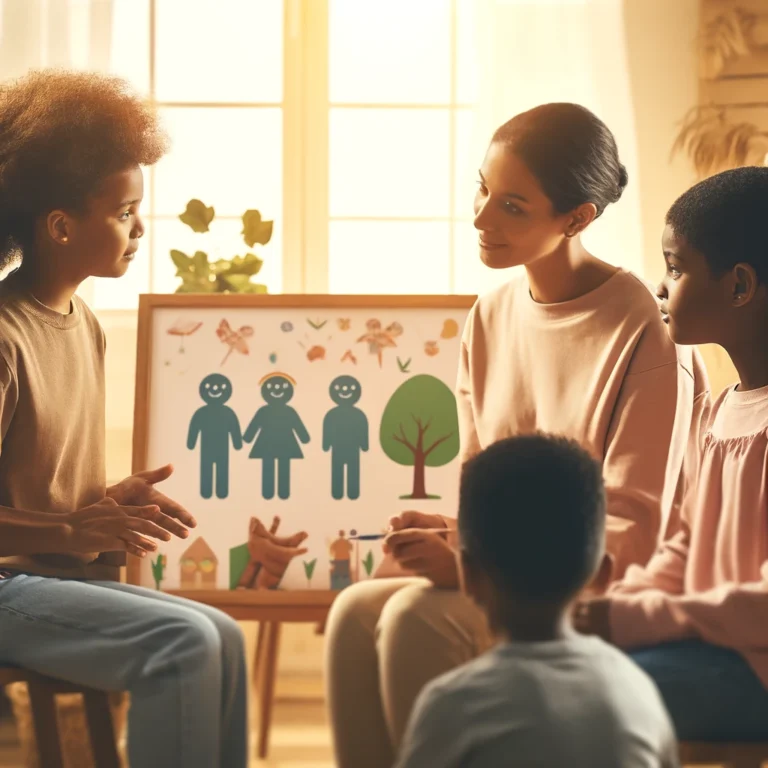Understanding the Importance of Sexual Health Education
Teaching kids about sexual health is important for their growth and well-being. Discussing this topic openly can help reduce their worries and correct misunderstandings. Studies show that when parents talk about sexual health in a way that suits their child’s age, kids are more likely to have a positive view of their bodies and relationships. This approach helps parents answer their children’s questions, creating an atmosphere of trust and openness.
Moreover, discussing sexual health with children plays a vital role in promoting healthy relationships. It equips kids with the knowledge to understand their bodies, set boundaries, and recognize the importance of consent. Engaging in sexual health education from a young age prepares children for the physical and emotional changes they will experience during puberty. Parents are responsible for teaching kids about these changes and guiding them through the complexities of relationships and sexuality.
Sexual health education helps prevent health risks and promotes understanding. Teaching about STIs and safe practices reduces future issues. Parents can guide children to respect themselves and others. Encouraging open peer conversations fosters understanding and openness.
Ultimately, the importance of talking to kids about sex cannot be overstated. This dialogue not only informs but also empowers children to make informed decisions regarding their bodies and relationships throughout their lives. By prioritizing these discussions, parents play an essential role in shaping a positive understanding of sexual health, setting the foundation for future healthy interactions.
When to Start the Conversation
Talking to children about sexual health supports their personal and emotional growth. Parents should start these talks early, even in preschool. Age-appropriate conversations build a strong foundation for future discussions. Simple messages about body awareness and privacy help kids feel safe sharing complex topics later.
As children grow, sexual health discussions should adapt. Toddlers learn about body parts, while school-aged kids understand boundaries and consent. These talks should be ongoing, evolving with maturity. Puberty, media, or peer discussions offer teachable moments. Parents can use questions about shows to discuss relationships and respect in age-appropriate ways.

Proactive engagement is crucial; parents should aim to guide their children rather than respond to them after they seek out information elsewhere. By being prepared to discuss sexual health topics, parents can help kids navigate challenges they might face. This gradual, deliberate approach ensures that children receive accurate sexual health education tailored to their developmental stage, making it easier to talk to kids about sexual health as they encounter new situations in life. Being attentive to the child’s needs and questions will facilitate open conversations about sexual health for years to come.
Tips for Effective Communication
Engaging in discussions about sexual health with children can be a challenging yet essential task for parents. One of the most important aspects of these conversations is creating a comfortable and judgment-free environment. Children should feel safe and secure to express their thoughts and ask questions without fear of reprimand or embarrassment. This can be achieved by using open body language, maintaining eye contact, and adopting a friendly tone. Ensure the location for these conversations is private, which can help reduce distractions and foster a more intimate setting.
Another key tip for effective communication is using age-appropriate language when discussing sexual health. Tailoring your vocabulary to match the child’s developmental stage minimizes confusion and helps them grasp complex concepts. For younger children, simple, clear terms related to their bodies and emotions are most effective. As they grow older and begin exploring their identities, parents should gradually introduce more nuanced topics such as puberty, consent, and emotional relationships.

Active listening is also crucial in these discussions. By showing genuine interest in what your child is saying, you reinforce that their feelings and opinions matter. Validate their concerns and acknowledge their emotions, which can help them feel understood. Encouraging questions and fostering curiosity about sexual health can help children become more informed, promoting a healthier understanding of their bodies and relationships.
When faced with uncomfortable topics, parents should remain calm and composed. Address difficult queries with honesty and clarity, utilizing resources and educational materials if needed. Communicating that it is normal to have questions about puberty and sex can help demystify these subjects. Establishing an ongoing dialogue rather than treating these discussions as one-time events is essential for nurturing trust and openness, allowing children to feel confident in approaching their parents about sexual health matters in the future.
Resources for Parents and Children
Equipping parents and children with the right resources is essential for facilitating healthy discussions surrounding sexual health. A wide array of books, websites, and educational tools are available to assist families in navigating this important topic. For parents, books such as “It’s Perfectly Normal” by Robie H. Harris and “The Care and Keeping of You” series by Valorie Schaefer provide age-appropriate insights into sexual health, making it easier to engage in discussions about puberty and sex with their children.

For online resources, websites like the American Academy of Pediatrics and Planned Parenthood offer credible educational materials tailored to various age groups. These sites often feature articles, videos, and interactive content that empower both parents and children to explore topics related to sexual health at their own pace. Additionally, local libraries frequently host workshops aimed at educating families about sexual health, providing a community-oriented approach to learning.
When seeking guidance, it can be beneficial to consult healthcare professionals. Pediatricians and family doctors often have resources and advice for parents on how to discuss sexual health effectively. Engaging with a healthcare provider can also assist in addressing any specific concerns that parents or children might have. Furthermore, community organizations sometimes offer educational sessions specifically designed for parents, aimed at enhancing their skills in open communication regarding sexual health topics.
Families must identify credible sources of information, ensuring that the materials they utilize are based on sound science. By fostering an environment where discussing sexual health is normalized, parents can help their children develop a comprehensive understanding of body changes and relationships. Gathering valuable resources equips families with the tools necessary for educational dialogues, ultimately benefiting the overall health and well-being of children as they navigate puberty and growing up.






